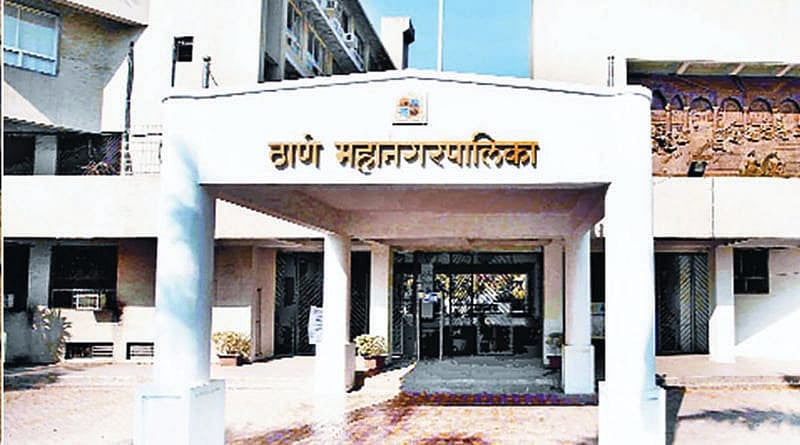For many years, Sree Hari Subhash has been a data engineer who has built and implemented artificial intelligence in many different structures to help people with their work more clearly: his tools can do accounting-type work and even help diagnose sicknesses.
The recent announcement about Oracle and Google Cloud's strategic partnership, where Oracle will generically expose new Gemini AI models through its cloud offerings was a landmark event in the global race for AI. It brings generative technologies, like advanced Machine Learning, as close to a company's own infrastructures as possible. More than anything, this was a confirmation that the company's transformation is more than just news. AI is now built into operational strategy, not simply a resource. No business can now afford to be without, it is now just a question of who will create such AI assistants and for what purpose.
Data engineer Sree Hari Subhash leverages Artificial Intelligence principles to create advanced tools that act as “professional employees” across diverse sectors. He has a practice in building AI-based tools working as accountants, HR professionals or assistants, and has also the research paper about AI and medicine. Last year, Subhash, being a part of Yum! Brands Inc., released a new AI-based solution on Oracle Cloud that takes the idea of partnerships like the Oracle and Google, and brought the power of AI capabilities down into the business process. As a result of this implementation, it simplified the mission of departments and assisted them in challenges that emerge or in the administration of paying salaries. This specialist easily implements AI tools deep into processes, improving the work of entire structures, be it business or medicine.
How the new AI assistant helped in the issuance of salaries
In order for the AI assistant to be a full-fledged employee and not just a tool, it is essential to integrate it correctly into the company structure. Subhash created an actual “specialist” which can work alongside real people. While working at Yum! Brands Inc., an industry leader in the restaurant sector, Subhash led the project to integrate Oracle Digital Assistant into the company's human resources and payroll systems. The team had an ambitious focus to ensure all employees have access to the support they need, at the time they need it, without having to wait for a reply from a human resource specialist and provide them with information that is accurate and personalized to them.
“One of the most interesting challenges we faced was the introduction of a digital assistant based on AI in Oracle Cloud. This allowed our employees to receive support more quickly and without the need for HR involvement. We have automated the processes related to personnel management, from calculating 401K to integrating payroll systems. I have been creating data models and reports to ensure timely and accurate analytics,” Subhash shared.
The process began with the integration of the digital assistant with the existing Oracle Human Capital Management (HCM) and Payroll systems. Hari Subhash implemented two-way data exchange, allowing the assistant to both receive up-to-date information about employees (such as remaining vacation days or payment schedules) and make changes to the system upon user request, if the necessary access rights were granted.
“A system has been integrated that extracts and transmits salary data to employees. Every time inconsistencies were reported, I refined the system and fixed them so that everything worked properly. As a result, reports became automated and employees could easily turn to the AI assistant for help,” Sree Hari Subhash commented on his work.
Special emphasis was put on the assistant's training utilizing the company’s existing data to ensure that instead of simply responding with stock responses, they were able to respond with information that was applicable, correct and relevant while taking place within a specific context. Because of this, matters that were previously dealt with manually (requesting information, changes to banking information, checking on the status of bonuses, booking vacations) began being resolved within seconds.
Simultaneously, was the integration with Oracle Business Intelligence for analytics; each of the sessions of communication with the assistant were recorded, which allowed the HR department to view statistics on queries and identify bottlenecks, leading and thus to rapidly improving processes. Sree Hari Subhash also achieved automation for a number of reports using IBM DataStage so that it was possible to view the performance of the assistant in real-time and be able to appropriately update scripts in a timely manner.
Such implementations always deeply impact a company's operations, as it enables work to happen at greater speeds and efficiencies, and employees feel greater flexibility and comfort in the workplace. In this light, Sree Hari Subhash's project at Yum! Brands encapsulates the idea of the Oracle-Google partnership: proof that AI, when strategically integrated, can operationalize people's daily work life with a level of depth as mind-blowing as other significant technological change.
Health assessment besides the money
It has been possible to implement AI not only in large corporations, but also in other fields. The expert had chosen to investigate how much machine learning systems could improve the working process of not only a large company, but also health care organizations. In this use case, the AI's job was not just to help workers: Subhash and his colleagues' project was to develop an “artificial doctor”. However, integrating AI into such a vast and complex area seems to be more difficult. It is necessary to teach AI what doctors have been learning for many years and to integrate it competently into the architecture. One of the significant areas of research for Sree Hari Subhash is the development of a system for predicting Alzheimer's disease using machine learning methods. The goal is to identify the signs of the disease at an early stage by analyzing complex data sets, including cognitive tests and medical indicators.
Alzheimer's disease is one common type of dementia that may be difficult to enhance presymptomatic knowledge of the disease. One possibility for early phase identification is the abnormality of handwriting. The current research explores the potential of handwriting analysis to indicate the ability to identify early stage Alzheimer’s disease.
The analysis was derived from UCI Machine Learning Repository's DARWIN dataset, which includes handwriting characteristics of 174 individuals (89 with Alzheimer’s disease, and 85 considered healthy) was explored as means of diagnosis. The RapidMiner platform was used by Sree Hari Subhash to contrast several machine learning algorithms, including SVM, decision trees, and logistic regression. The modelling objective was to provide for the prediction of Alzheimer patients with precision, while limiting false positives.
AI has been able to detect patients in 86% of cases, and healthy patients in 77%, which has marked a historical leap in the employment of machines in medicine. Subhash was involved in writing a paper entitled “Prediction of Alzheimer’s Using DARWIN Dataset” and later presented his implementation in a competition.
“In this study, we examined various SVM variants and modeled each of them on a dataset, both using feature extraction and without it, and proved that the SVM with the rbf variant is the best among all of them. I am glad that the research was successful and it turned out to achieve results and even show other experts how Artificial Intelligence can be used,” Subhash commented.
The outcomes of the study were shared at the National Conference on Information and Communication Technology in India, and currently Sree Hari is preparing to publish a scientific article in an international journal. This is an experience that he considers one step closer to further and larger application of AI in medicine and other social cause-oriented domains. His achievements in the field of Data Engineering have helped him become recognized in the community and join various associations. Subhash is a fellow member of Hackathon Raptors, an association that brings together engineers and professionals from leading technology companies to host unique hackathons around the world. Also due to his development now he is working for the one of the four biggest financial firms in the world – KPMG. At his current role at KPMG as a Senior Data Engineer he is working with customers, collecting, analyzing and documenting customer requirements and translating them into specific strategies for development teams. Subhash designed a data flow architecture to transform data so that business customers receive reliable and timely analytical results.
Sree Hari Subhash was able to obtain the necessary certificates and successfully pass the difficult Microsoft Azure artificial intelligence exams, due to the impact made on development of artificial intelligence. He will now move on to developing the scientific conversion of work and create new ways to develop artificial intelligence and machine learning tools.




